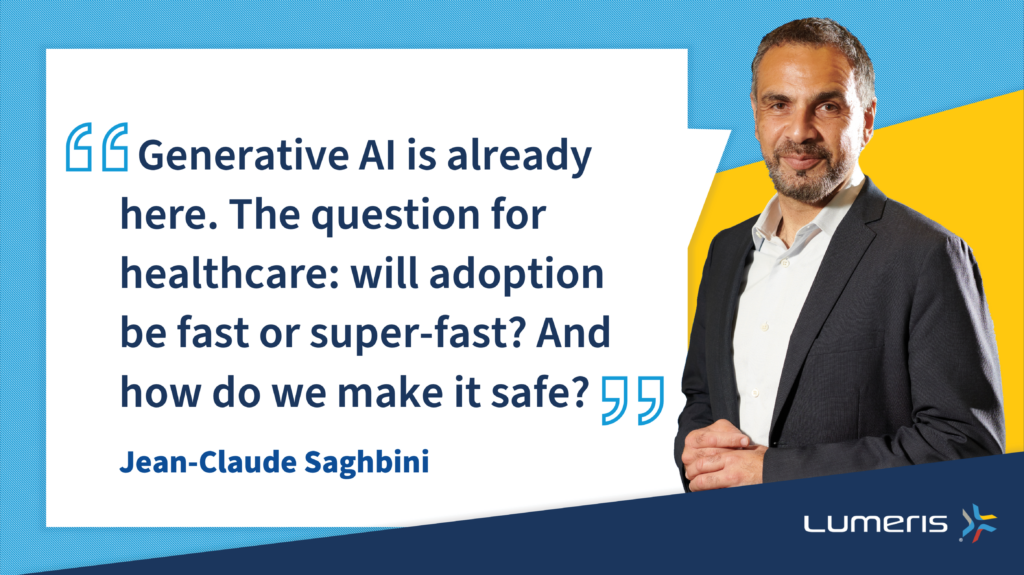The future of AI in healthcare was on everyone’s mind at the 2023 HIMSS Global Health Conference & Exhibition. My key takeaway is that generative AI is already here and its potential impact on healthcare is enormous. The question for healthcare: will adoption be fast or superfast? And how do we make it safe?

Generative AI is an exciting area of AI that has the potential to revolutionize healthcare. This technology has already shown great promise in industries such as entertainment, gaming, and e-commerce, but its potential applications in healthcare are even more exciting.
At Lumeris, we use machine learning for a variety of population health computations such as risk scores and predictive models, as well as to drive our clinical care patient-provider orchestration platform. These advances offer health systems and providers ways to assure that they can interpret data faster, use more targeted insights and find opportunities to improve health outcomes and reduce cost. As we continue to leverage AI to manage population health and orchestrate care, we have a tremendous opportunity to improve outreach and help physicians take care of patients who are not physically in their office.
As I listened and talked with colleagues, I found numerous examples of generative AI in action that will address some of our most pressing challenges. We are all concerned about the impending shortage of caregivers and the stress on active caregivers. The World Health Organization has projected a global shortage of ten million health workers by 2030. This is a daunting number, and it underscores the urgent need for AI and technology to plug the gap.
In a way, it is not optional as it may be our only solution. As I explored the latest trends and advancements in healthcare technology at HIMSS, I was excited to see examples of great success with ambient listening and documentation to reduce physician burden. This technology has the potential to be a game-changer in helping clinicians manage efficiently in complex care settings, while also freeing up more time for them to focus on patient care.
The road to adoption of generative AI, however, means overcoming some very real concerns around safety and transparency. The Tuesday keynote had a refreshing amount of disagreement and debate between panelists with some very strong opposing points of view. The technology is still relatively new, and there are many unanswered questions around how it will be regulated and monitored to ensure its safety.
Just as the opportunities are real, the risks are also real. To succeed we cannot overlook the fears and we must build the appropriate guardrails as we launch into this new era. To ensure the safe adoption of generative AI in healthcare it is important that the industry takes a collaborative approach. This means bringing together key stakeholders, including regulators, healthcare providers and technology vendors to establish guidelines and best practices around the use of the technology. This is a global issue and while there is widespread acknowledgment around the need for alignment, we cannot underestimate the challenge of collaboration.
But I must confess, the boyish engineer in me is smiling and super excited!

